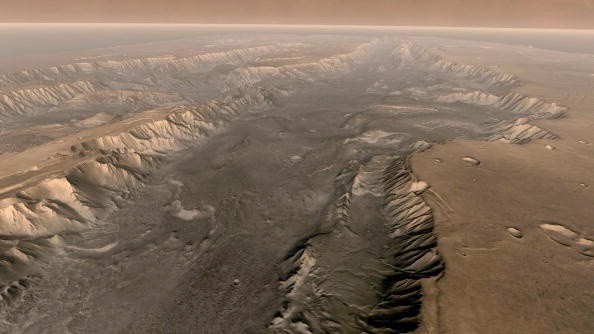A report from Interesting Engineering reveals that the possibility of the existence of liquid water on Mars became stronger, as new evidence shows.

Researchers from the University of Cambridge discovered new evidence through a study that shows the existence of liquid water beneath the south polar ice cap of the red planet. Nature Astronomy presented the research online.
Through the help of NASA's Mars Global Surveyor satellite, the researchers used different techniques as they conducted the study. The satellites were also used for the examination of the topography of Mars' south ice cap. The study resulted in finding signs that match subglacial lakes here on Earth.
New Atlas reported that the results show the existence of a warm and wet oasis in Mars' distant past. However, it is still unclear if any liquid water remains near the surface at the moment. The estimate of the lake, as per the scientists, sat below 1.5 kilometers of solid ice that stretches about 20 kilometers wide.
The case of the study remains unclosed but to find pieces of evidence that support previous claims is very satisfying. It is also now impossible for someone to dismiss or discredit the claims of the existence of liquid water on Mars, as the presented data is more than enough.
Research Team of the Study
Cambridge Scott Polar Research Institute Professor Neil Arnold led the study together with fellow scientists. He stated via Space that "The combination of the new topographic evidence, our computer model results, and the radar data make it much more likely that at least one area of subglacial liquid water exists on Mars today,"
Along with Arnold, he was accompanied by a team that included several researchers from the University of Sheffield, the University of Nantes, University College, Dublin, and the Open University and the University of Cambridge.
Arnold stated that the data that came back to them from Mars could answer the team's several questions regarding the study. The same techniques that were tested on Mars can also be done here on Earth for them to continue their research. "It's exciting to use these techniques to find out things about planets other than our own," he stated.
Related Article : Shining Lakes on Mars' South Pole May Be Something Else, Scientists Say
This article is owned by TechTimes
Written by Inno Flores
![Apple Watch Series 10 [GPS 42mm]](https://d.techtimes.com/en/full/453899/apple-watch-series-10-gps-42mm.jpg?w=184&h=103&f=9fb3c2ea2db928c663d1d2eadbcb3e52)



